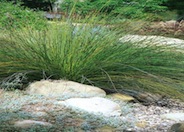
Common name:Small Cape Rush
Botanical name:Chondropetalum tectorum
Chondropetalum tectorum has 3'-4' tall stems that shoot out in all directions from the roots. Each stem has papery bracts connected to the ends that turn from tan to dark drown, then fall off. Chondropetalum can grow in marshes, in the ground with regular watering, or in drought conditions.
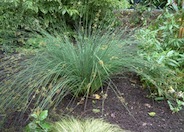
Common name:California Gray Rush
Botanical name:Juncus patens
Although a wetland plant, Juncus patens can tolerate fairly dry conditions. It will slowly clump to 2'-3' wide and a height of 2'-2.5'. There are many selections of this species available with different heights and widths. It is carefree, with little to no maintenance. It provides great upright structure to many styles of landscapes.
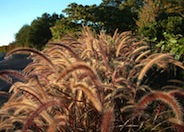
Common name:Purple Fountain Grass
Botanical name:Pennisetum 'Rubrum'
This grass will reach 6' high and has deciduous, purplish red leaves with clusters of purple flowers that appear in summer and fall. Tall grasses are highly combustible.
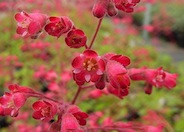
Common name:Santa Ana Cardinal Coral Bells
Botanical name:Heuchera 'Santa Ana Cardinal'
This Heuchera is believed to be a hybrid between the native Heuchera maxima and the non-native Heuchera sanguinea. The name is a little misleading as the flower is more pinkish red than it is red or cardinal. It is best used in dry shady conditions with well drained soil. Once established, it requires little care. It is susceptible to mealy bugs and root rot if it receives too much water. It grows to 18"-24" tall and wide. It looks great in mass plantings.
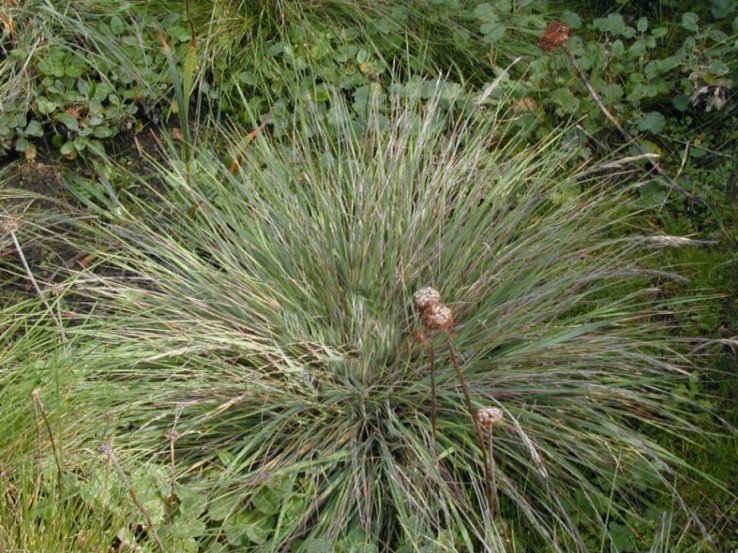
Common name:Reed Grass
Botanical name:Calamagrostis foliosa
This tufted, perennial bunchgrass forms a beautiful, dense mound of gray green leaves that reach 2' tall, with showy arching flower stalks to 3' tall. Reed Grass leaves assume an attractive purple coloration in the fall and winter. This evergreen should be grown under sun, with little or no summer watering required. Tall grasses are highly combustible.
| Designer: Susanne Jett | Small Waterfall and Pond |
Photographer: GardenSoft |
Soils and Compost:
Practice grass-cycling by leaving short grass clippings on lawns after mowing, so that nutrients and organic matter are returned to the soil.
Water Saving Tip:
Mulching and adding compost to soil can minimize evaporation and help soil absorb and store water.
Integrated Pest Management:
Attract, or buy beneficial insects such as ladybugs and lacewings to control pest outbreaks in your garden.

